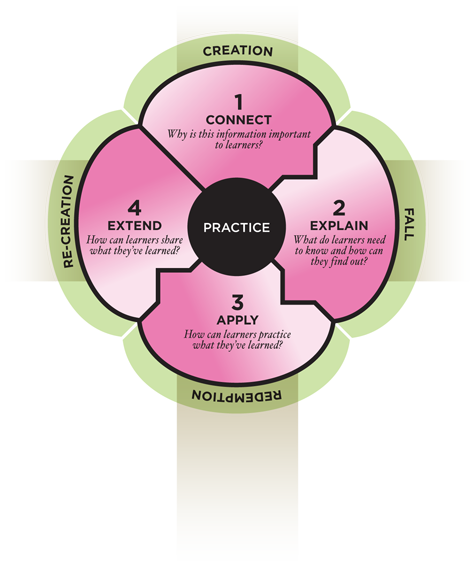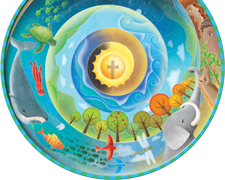Instruction
Learners progress in many different ways. A natural, brain-friendly cycle of learning suggests that learners learn best when they can connect to personal experience (connect), develop a conceptual understanding (explain), practice and apply new knowledge (apply), and synthesize to create new ideas (extend).
The instructional cycle shown here recognizes these elements of teaching and learning. It is based on consensus among various instructional models created by noted researchers, curriculum developers, and learning theorists, such as Gardner, Tomlinson, McCarthy, Johnson & Johnson, Hunter, Marzano, Wiggins, and McTighe. Models offered by these and other individuals include: Multiple Intelligences, Differentiated Instruction, Cooperative Learning, 4MAT, Inquiry Learning, Project-based Learning, and Understanding ByDesign.
This model promotes teaching methods that meet the needs of individual learners and that ensure whole-person learning, all within the context of the Adventist worldview. Instruction focused on these four stages will appeal to all learners: those who enjoy talking about what’s happening in their lives, those who want more information about the topics being studied, those who want to know how the new concepts fit with real life, and those who want to creatively apply what they’ve learned to their own context in collaboration with others.



